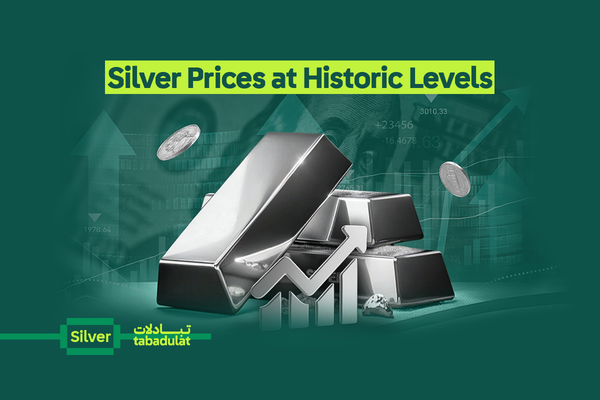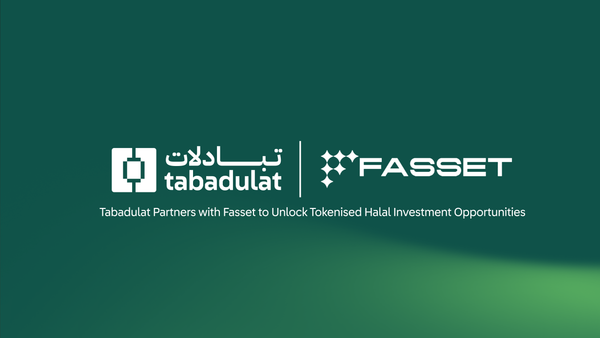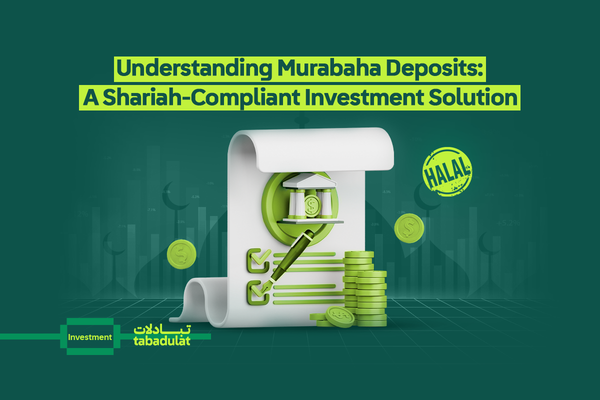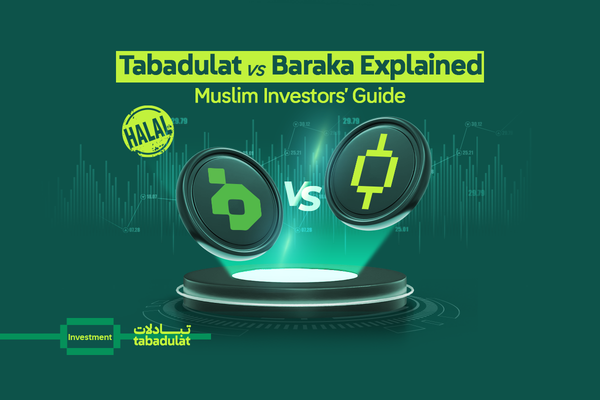Microsoft Hits $4 Trillion.. But Is It a Halal Investment?
Microsoft’s market cap just hit $4 trillion, but is MSFT halal? We review Microsoft’s business model and financial ratios using AAOIFI standards to help Muslim investors decide if it belongs in their Shariah-compliant portfolio.
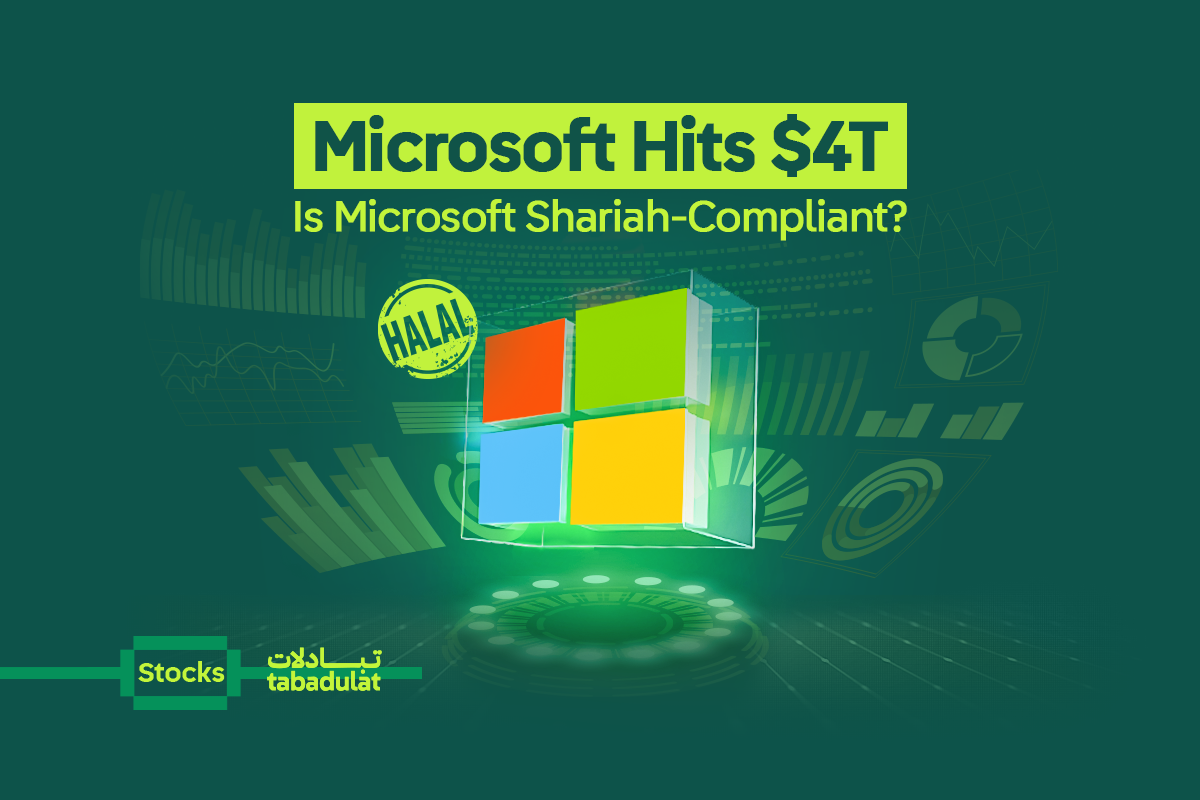
Microsoft has just shattered records, the company’s market value surged past $4 trillion after the company reported impressive fourth-quarter earnings driven by strong growth in cloud services and artificial intelligence. Shares jumped 8%, reflecting investor excitement around the tech giant’s expanding role in the AI race.
For Muslim investors, this achievement sparks a pivotal question: Can you participate in Microsoft’s meteoric rise and still uphold your principles of Halal investing? As the world’s leading tech giant posts double-digit growth and Azure revenues soar past $75 billion, the urge to invest is strong, but so is the commitment to Shariah compliance, religious compliance, and ethical investing.
Earnings Beat Forecasts
The company reported $76.4 billion in revenue for the quarter, up 18% from the same period last year and beating analyst expectations of $73.8 billion. Net income rose 24% to $27.2 billion, with earnings per share reaching $3.65, above the forecasted $3.38.
A major driver of this performance is MSFT continued investment in AI tools like its CoPilot assistant, now built into Word, Excel, PowerPoint, and other Microsoft apps. To meet rising demand, Microsoft plans to pour $80 billion into AI data centers during its 2025 fiscal year.
Microsoft is far more than Windows and Office. The company dominates cloud computing through Azure, which reported a record $75 billion in annual revenue for 2025, closing the gap with Amazon Web Services. Its portfolio includes LinkedIn, gaming (Xbox, Activision Blizzard), productivity software, and enterprise solutions. The firm’s revenue model is diversified, combining subscription services, cloud infrastructure, and software licensing contributing to stable cash flows and global market leadership.
Despite the growth, Microsoft has also trimmed its workforce, cutting about 6,000 jobs roughly 3% of its global staff. Meanwhile, Meta also reported strong results the same day, pushing its stock up nearly 10% in after-hours trading.
To learn more about Meta's Shariah compliance read our blog here.
Shariah Compliance Review
Microsoft’s strong performance is part of a bigger tech boom. In July 2025, its market cap hit $4 trillion after strong fiscal Q4 earnings. This success is drawing attention from both regular and Islamic banking investors. More people now want Shariah-compliant investing options like Halal ETFs and Islamic mutual funds to invest in tech while keeping their portfolios interest-free and riba-free.
To learn the difference between Halal ETFs and Halal Mutual Funds read our guide.
However, not all Halal ETFs automatically include Microsoft. Fund managers use halal stock screeners and advice from Shariah boards to check if it meets the criteria. Many are also turning to sukuk bonds as a riba-free income option. These tools help investors stay within religious compliance. With more ethical investing options available, Muslim investors can now grow their money while sticking to Shariah compliance.
While the bulk of Microsoft’s income is from software and cloud services, it’s important for Islamic finance practitioners to note that the company does maintain a cash reserve and invests in various securities. The nature of these investments and income sources must be scrutinised for riba-free operations, as even small streams of interest-based income can affect Shariah compliance assessments. This is especially relevant for those seeking interest-free investments and adhering to Islamic banking principles.
For Muslim investors, Shariah-compliant investing requires more than avoiding companies with clearly haram business lines. It means applying a Halal stock screener, often overseen by a Shariah board, to evaluate revenue sources, debt ratios, and interest exposure.
So far, Microsoft stock passes the main AAOIFI Shariah compliance benchmarks. Its interest income is below 5% of total revenue, riba-based debt is under 30% of the market cap, and cash plus interest-bearing investments also remain within the 30% limit, qualifying it as halal for now and suitable for inclusion in an Islamic portfolio.
However, ongoing religious compliance monitoring is essential. Risks include potential increases in interest-based income or debt, or changes in business activity and profit-sharing models that could affect compliance.
Conclusion
Microsoft’s $4 trillion milestone is a testament to its innovation and market dominance. For Muslim investors, MSFT generally meets key Shariah screening benchmarks, low debt, compliant core business, and manageable non-halal income, making it a candidate for inclusion in Islamic portfolios, Halal ETFs, and Islamic mutual funds. However, minor purification of interest income is advised, and ongoing due diligence is essential. For those committed to riba-free, interest-free, and ethical investing, Microsoft stands out as a mostly compliant blue-chip stock.
Want to go deeper? Use Tabadulat’s free halal stock screener to investigate Microsoft and build your Shariah-compliant, faith-driven portfolio with confidence. Explore options like sukuk bonds and profit sharing for further diversification in your Islamic finance journey.
FAQs
Is Nasdaq haram in Islam?
The Nasdaq itself is a stock exchange and not inherently halal or haram. The permissibility depends on the specific companies listed on it and whether they meet Islamic finance criteria.
Are American stocks Halal?
Some American stocks are halal and others are not. Shariah-compliant investing requires screening companies based on their core business activities and financial ratios in accordance with Islamic guidelines.
Is Microsoft a Halal stock?
Yes, Microsoft stock passes the main AAOIFI Shariah compliance benchmarks. However, compliance can change over time, so it’s best to check using a Shariah-compliant stock screening tool.
Are gaming stocks Halal?
It depends. Some gaming companies produce content considered haram (e.g., gambling, adult themes, or violence), which can affect their Shariah status. Each stock should be evaluated individually.
Is Nvidia a Shariah compliant stock?
Shariah-compliantYes. Based on the latest financial data, Nvidia passes the AAOIFI screening criteria. It is currently considered halal.
Is Tesla a Shariah compliant stock?
Yes. Based on the application of AAOIFI standards to its latest Q1 2025 shareholder update, Tesla stock is currently Shariah-compliant and Halal to invest in.
Is Meta a shariah compliant stock?
Yes, Meta stock passes the main AAOIFI Shariah compliance benchmarks. Its interest income is below 5% of total revenue, riba-based debt is under 30% of the market cap, and cash plus interest-based investments also remain within the 30% limit, qualifying it as shariah compliant for now.

